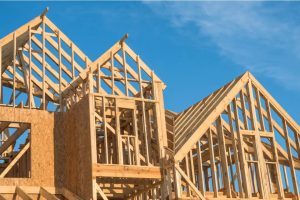
Understanding Construction Loans
What are Construction Loans?
When it comes to self-building a home, you’ll need specialized financing, and that’s where construction loans come into play. Construction loans, also known as construction-to-permanent loans or self-build loans, are short-term loans designed to cover the costs of building your home. Unlike traditional mortgages, construction loans typically only require interest payments during the construction phase. Once the construction is complete, the loan is converted into a permanent mortgage.
Types of Construction Loans
There are two main types of construction loans: construction-to-permanent (C2P) loans and stand-alone construction loans.
Construction-to-Permanent (C2P) Loan: A C2P loan is a comprehensive financing option that covers both the land acquisition and the construction costs. This loan starts as a short-term loan during the construction phase, where you only pay interest. Once the construction is complete, it seamlessly converts into a permanent mortgage. The advantage of a C2P loan is that you only have to go through underwriting and closing once, saving time and money.
Stand-Alone Construction Loan: A stand-alone construction loan is a short-term loan that covers only the construction costs. During the construction phase, the lender disburses funds to the builder based on the progress of the project. You’ll typically pay interest on the withdrawn funds. Once the construction is complete, you’ll need to either pay off the loan or refinance it with a permanent mortgage.
Qualification Requirements for Construction Loans
Qualifying for a construction loan can be more challenging than obtaining a traditional mortgage. Lenders impose stricter credit standards and require a sizable down payment due to the higher risk associated with construction loans. Here are the typical qualification requirements:
-
- Strong Credit Score: Most lenders prefer a credit score of 700 or higher for conventional construction loans. However, government-backed loans like FHA, VA, and USDA may have more flexible credit score requirements.
- Significant Down Payment: Construction loans often require a larger down payment compared to traditional mortgages. While conventional loans may ask for 20% upfront, government-backed loans like FHA, VA, and USDA may offer options for lower down payments.
- Reputable Licensed Builder: Lenders will vet the builder or developer to ensure they are financially stable and experienced. The builder will need to provide licenses, insurance proof, and vendor references to demonstrate their reliability.
The Construction Loan Process
Now that you have an understanding of construction loans, let’s delve into the process of obtaining one. Here are the key steps involved:
Step 1: Preapproval for a Home Construction Loan
Before approaching a builder, it’s essential to get preapproved for a home construction loan. Preapproval involves the lender evaluating your income, credit score, and other financial factors to determine the loan amount and interest rate you qualify for. This step helps you establish a budget for your home-building project. To get preapproved, you’ll need to provide the lender with documents such as pay stubs, W-2 forms, tax returns, and bank statements.
Step 2: Finding a Licensed Builder
Next, you’ll need to find a reputable and licensed builder or developer to construct your dream home. Seek recommendations from friends, family, or consult the National Association of Home Builders directory for suggestions. Gather estimates from multiple companies and compare their offers. Once you’ve selected a builder, sign a construction contract that includes an itemized budget and a construction timeline.
Step 3: Mortgage Rate Quotes and Program Selection
Now it’s time to request mortgage rate quotes from different lenders. Compare the repayment terms, interest rates, and closing costs for each offer. Depending on your eligibility and preferences, you can consider conventional loans through Fannie Mae or Freddie Mac, or explore FHA, VA, or USDA programs that offer single-close construction loans. Select the loan program that best suits your needs and goals.
Step 4: Applying for the Home Construction Loan
Once you’ve chosen a loan program, it’s time to apply for the home construction loan. The lender will evaluate your credit reports, income, and financial documents. Additionally, they will review the signed construction contract, builder’s financial statements, licenses, insurance documents, and land survey. This thorough review helps the lender assess the project’s feasibility and mitigate risks.
Step 5: Disbursement and Inspection
If approved, the lender will disburse funds for the construction based on the progress of the project. Inspections will be conducted at different milestones to ensure the work is completed according to plan. Draws on funds will be made as the building progresses, with the lender inspecting the work before issuing each check. It is crucial for you to stay in touch with the builder and request regular updates and necessary paperwork.
Step 6: Conversion to Permanent Loan
Once the construction is complete, the construction loan will be converted into a permanent mortgage. At this stage, a final inspection will be conducted to ensure the home meets all safety and quality standards. After the inspection, the loan will transition into a principal-and-interest payment, amortized over the remaining loan term. It’s important to note that interest rates may fluctuate during the construction phase, but you’ll lock in a rate for the permanent loan.
Advantages and Considerations
Advantages of Construction Loans
- Tailored Financing: Construction loans provide financing specifically designed for building your dream home, allowing you to customize every aspect to your liking.
- Interest-Only Payments: During the construction phase, you only need to make interest payments on the loan, which helps keep payments low. This provides financial flexibility while the home is being built.
- Protection Against Delays: With a construction-to-permanent loan, your permanent loan is already closed, protecting you against unexpected delays or disqualifying factors that may arise during the construction phase.
- Locking in Interest Rates: By securing a construction-to-permanent loan, you can lock in the interest rate for the permanent mortgage, protecting yourself from potential interest rate fluctuations.
Considerations for Construction Loans
- Stricter Qualification Requirements: Construction loans typically have stricter credit score and down payment requirements compared to traditional mortgages due to the higher risk involved.
- Higher Interest Rates: Construction loans may have slightly higher interest rates compared to traditional mortgages due to the increased risk and lack of collateral during the construction phase.
- Complex Process: Obtaining a construction loan involves a more complex process compared to a traditional mortgage. It requires coordination between the lender, builder, and yourself to ensure a smooth building process.
- Potential Cost Overruns: Building a home can be unpredictable, and unexpected costs may arise, leading to potential budget overruns. It’s important to have a contingency plan and ensure you have sufficient funds to cover any additional expenses.
Building your dream home is an exciting endeavor, and construction loans can provide the necessary financing to turn your vision into reality. Whether you opt for a construction-to-permanent loan or a stand-alone construction loan, understanding the process and qualification requirements is essential. By following the steps outlined in this guide and working with reputable professionals, you can navigate the complexities of construction loans and create the home you’ve always dreamed of. Remember to conduct thorough research, compare offers, and consult with industry experts to make informed decisions throughout the process. Happy home building!
Contact Dan (954-336-1922) for a free consultation!
—
 About Dan Campanella – Mortgage Specialist
About Dan Campanella – Mortgage Specialist
Dan provides clients with years of proven experience and an abundance of financing options for their mortgages. His common sense approach and devotion to customer service is what sets him apart in the highly competitive mortgage industry. Dan prides himself on consistently delivering “referable services” to his clients, referral sources, and partners.

